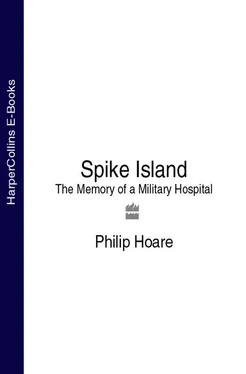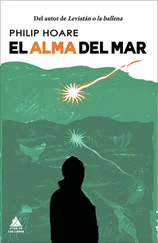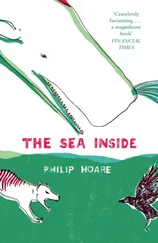There was, I now realise, an almost genetic reason for my mythologising of my suburban surroundings, for my fascination with these tenuous traces of local history: their arcane details seemed to reference a greater story; a personal thread which linked the legends of Sholing-as-Spike Island. My maternal forefathers had been involved in the slave trade in Liverpool, while my father’s ancestors had fled Ireland during the potato famine. Such dark romantic notions counterpointed the ordinariness of present-day suburbia, and seemed to ally me to Sholing’s shadowy epithet. They gave my rootlessness an identity.
By a strange process of insult and immigration, the infamy of Ireland’s Spike Island, wreathed in crime, insurrection and its terrifying consequences, had been transposed to an odd little suburb hundreds of miles away in southern England. In the mid-nineteenth century, Irish workers were attracted by the ship-building industries of Southampton and Woolston’s dockyards, and by the shipping lines which had begun to ply between Southampton and New York. Just as the gypsies had acquired the slur of ‘Botany Bay’, so the incoming Irish brought with them the reputation of Spike Island – used either in half-ironic humour by themselves for their southern exile, or by their suspicious neighbours as a slur on their supposedly criminal characters. They would come to glory in the nickname, perhaps as a rebellious gesture against the moneyed class which also began to move into the neighbourhood.
Courtesy of the railway and Southampton’s growing port, land here had begun to command a premium, and in the 1850s came more houses, constructed from the products of the local brickworks and gravel pits; slowly at first, then moving more swiftly along the new railway line from Southampton to Portsmouth, over a horizon as yet undarkened by brick and slate. Then grander houses appeared, wide double-fronted houses in yellow brick, as if their colour marked them out from the commoner product of Spike Island’s clay and its brickworks. Invested with authority and capital, their inhabitants aspired to gentility, with their mock turrets, conservatories and brick walls. Sholing acquired the veneer of respectability; the institutions of church, freemasonry and local politics. Its pines and cedars and holly hedges set out the social status of its merchants, vicars, doctors, shop-keepers, all firm in their expectations of the future.
Then the unthinkable happened, and Armageddon intervened on this complacent scene. After the First World War the serried ranks of ‘homes for heroes’ marched over the land, their strip-like plots providing every Englishman with his own piece of land. The larger, older houses shrank into flats or nursing homes, or disappeared into rubble and rhododendron; gypsy cottages became bungalows or crumbled back into the dirt from which they came. After the Second World War, developers finished what the bombs had started. Spike Island was swallowed up by modern suburbia and the discrete identity of Sholing was blurred – a process almost complete by the time our family moved there in the early 1960s.
On my way to school, I used to walk past a cottage around the corner from our road, one of the low little homes that dotted the neighbourhood. In its garden stood a round summerhouse, ingeniously constructed to turn heliotropically, like a flower following the sun. Its windows were empty, the green paint peeling from the wooden slats. I’d imagine some frail elderly lady sitting inside, dressed in lace like tea-stained curtains, the pale sun falling on her papery skin. Then one day the summerhouse disappeared, and in its place grew a bed of blinding French marigolds.
Along these avenues and cul-de-sacs, the comforting icons of stained-glass sunbursts and galleons on wavy seas would soon give way to the bland stare of plastic windows, and the porches which welcomed the milkman or postman would be boarded up against the world. But for now the corner shop still sold Fruit Salad and Blackjack chews, the grocer sliced cooked meat with scything machines ready to take off an inattentive finger, and the chemist had huge bottles of blue and red water in the window and cream and chrome scales on the counter for weighing babies like quarter-pounds of sweets.
On the other side of the road from the cottage and its summerhouse ran a ribbon of woody valley where a meandering, rusty stream sought the freedom of the sea. Around it lay the vestiges of Sholing Common, the traces of its ancient provenance marked only on old Ordnance Survey maps in the gothic script of tumuli and Roman roads. The valley was crossed by Church Path, a narrow lane which descended steeply to the stream, then rose up towards a stone and slate church with a modest steeple, described in Pevsner’s Buildings of England as ‘prettily set in a pine-backed churchyard in a strange Victorian rural backwater of suburban Southampton’.
Those pines were less covered by sinuous ivy than they have since become, but even then Church Path was a shadowy place. My mother would point out tiny gravestones in its churchyard, memorials to Romany children from Botany Bay, where the dark-faced inhabitants, looking like ancient Britons, spat at us while we waited in the family car as our parents went to buy some plants from their father. Their caravans stood next to their bungalows, and sometimes we’d hear the sound of horse hooves clattering down our road, and run out to see the young blades riding past on a pony and trap.
Invested with the strangeness of the people who lived beyond Church Path, this wilderness at the bottom of our road both fascinated and terrified me. It was where, in my imagination, chained convicts awaited their criminal exile, languishing on the scrubby grass, indolently desperate figures out of Gustave Doré’s Dante . During the war, barrage balloons had been set up on the common, leaving behind rusty iron rings which in my mind became tethers for the manacled prisoners. Now they secured two lonely gypsy ponies, slow-moving, semi-wild beasts with shaggy manes, big round bellies and a sad look in their big black eyes, as if to plead for their release.
Sometimes, on the bus from school, I’d go on a stop and walk back through Church Path. It was a self-consciously daring act. The way home led through a green tunnel overhung by yew, ivy and laurel, dipping steeply into the damp valley before the distant light at the end; the pathway was dark and scary even on a sunny day. I once found a dead mole there, its black velvet unbloodied, tiny pink fin-like paws sticking out stiffly at right-angles to its lifeless and blind body, like an abandoned soft toy dropped from a passing pushchair. On the other side of the path from the churchyard – where a girl from up the road once told me I’d be haunted that night because I’d walked across a grave – was a derelict house. Its garden contained a large rectangular pit roughcast in concrete, apparently a pre-war swimming pool. It may have been the same girl who told me that the house had been owned by a Dr White, and that he had invented something called the tampon. In fact, the owner was a plain Mr White, undistinguished by the invention of anything at all.
Below the churchyard, where dead wreaths and old prams were chucked over the iron railings into the valley’s dip, was another low cottage with a tiled roof and green wooden door; smoke could sometimes be seen coming from its chimney. It looked like a farmhouse left over from a previous century, still standing firm in the last vestiges of wild land as the modern world closed in; or like the old railway carriage in which we used to take our holidays at Gunard on the Isle of Wight, around which the bats flew at night.
Chickens pecked about in the small patch of cultivated land in front of the house, and there was a tethered goat with curly horns and bulging eyes with demonic slits for pupils. Another Church Path legend claimed someone had been murdered in this valley, blasted at short range with a shotgun; I saw the act replayed in slow motion, the blue smoke of the weapon’s discharge, the recoil of the body, the red of the victim’s blood. Although I had no reason to suspect the inhabitants of this cottage – which, like the rotating summerhouse, disappeared sometime later in my childhood – I was scared of the seldom-seen old man who lived there. Sometimes he would stand by his cottage door, white-haired, bent double and propped up with a stick. Perhaps his wife joined him, in a white pinafore, her hair done up in a silver bun. Or perhaps I invented the scene, like the psychic timeslip in The Man Who Fell to Earth , when the orange-and-yellow-haired alien, Thomas Jerome Newton, is driven through countryside and glimpses a family of nineteenth-century hillbillies outside their shack, its chimney smoking, a burst of inter-bred banjo on the soundtrack.
Читать дальше












